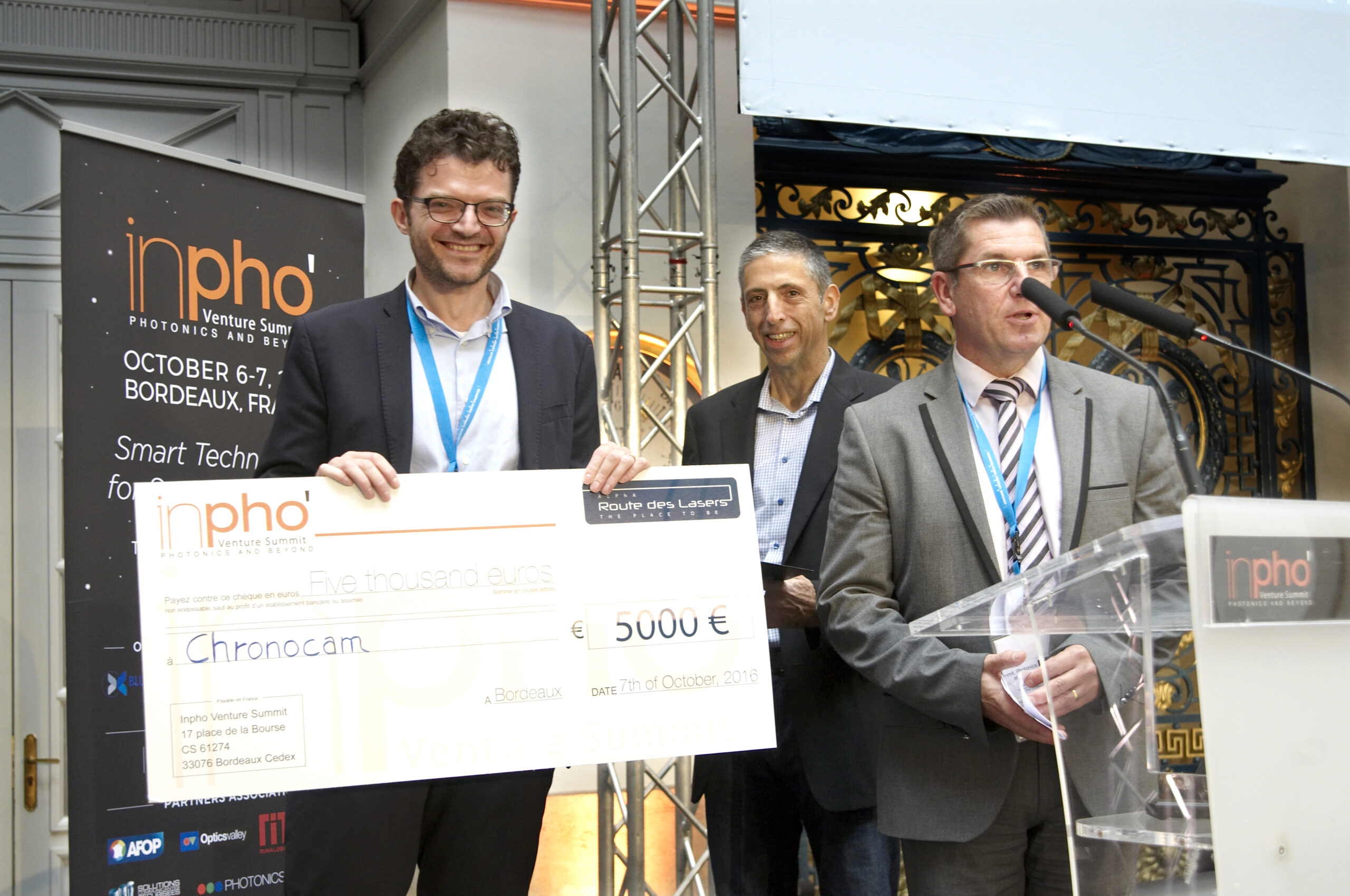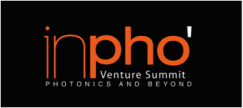Share this post:

Bordeaux, France, October 18, 2016 – Technological innovation and entrepreneurship is on the rise in Europe, say panelists at INPHO® Venture Summit, a financial investor and strategic business partnering event focused on growth market investments. Prominent attendees at the event, which took place on October 6-7 in Bordeaux, believe that while Europe is addressing weaknesses in its innovation ecosystem through EU-led funding instruments, gaps remain in the infrastructure. Sizeable capital investment from banks and more commercial deals between startups and large European corporations are needed to allow European startups to thrive.
“This year’s conference provided a productive forum on the convergence of hardware technologies, such as photonics, and software capabilities, such as big data analytics, to open up new opportunities for startups,” said George Ugras, chairman of Inpho Venture Summit. “It also helped that we were able to attract a pretty even number of participants from the investment, corporate and start-up communities.”
Thales sponsored this year’s conference, hosting 155 attendees from a range of industries and the international financial community, including UBS Investment Bank, Suez Groupe, Hamamatsu Photonics France and the Trumpf Group. The event engaged investors and leading industrial players in discussions on high investment opportunities in four growth markets: IoT and the Smart Grid, Mobility, Digital Healthcare and Telecom/Datacom.
For many who attended InPho, it was a “thrill to see photonics impacting fields other than telecom, such as connected cars and digital healthcare,” said Steve Alexander, senior VP and CTO of Ciena, a network solutions specialist for optical transport and switching, carrier Ethernet, data and broadband networks.
Twenty-three early- to late-stage smart technology firms, the majority based in Europe, pitched investors to collectively target €75M ($83.5M) in funding. As many as two-thirds of the companies who pitched attracted interest from investors wishing to pursue next phase discussions.
Chronocam, a developer of vision sensors, whose technology is already deployed in a bionic vision system, won the title of the ‘most promising company’ along with the €5,000 award, sponsored by the Route des Lasers. Damae Medical, a maker of innovative medical imaging devices for visualizing tissue deep below the skin’s surface, came a close second.
Europe’s strengths and shortfalls
Besides a special showcase on disruptive technologies, two roundtable sessions on innovation were held entitled: ‘Boosting Technology Innovation Through Equity Investments’ and ‘Europe’s Attractiveness to Innovate’, where leading industry decision-makers debated the future of innovation in Europe.
Europe is a good environment for developing innovation according to the panel led by Nitan Pathak, investment manager at the European Investment Fund (EIF).
Panelists identified the following strengths:
– ‘Fantastic’ fundamental research
– R&D being among the ‘best in the world’
– Excellent engineers
– Smart entrepreneurs
– Value-added support provided by regional and EU-level governments
Europe is now focused on “bridging the gap between the end of the research phase, when the financial system of subsidies and grants are no longer available, and the period enabling startups to scale-up,” said Willy van Puymbroek, European Commission head of the DG Connect Unit, Competitive Electronics Industry.
The EU is currently engaged in issuing loans and providing incentives for business angels and banks to take risks. This is in addition to the €315bn strategic investment provided by the Juncker plan – in which 200,000 SMEs have benefited – and Horizon 2020, a EU research and investment program with nearly €80bn of funding available.
Private money can “bring the breakthrough in enabling European startups to migrate to the next stage,” said Jean-Louis Malinge, investment manager at Arch Venture Partners. “But there is the need for more European blockbusters to motivate the financial community,” added Christian Reitberger, partner at pan-European technology investment firm Wellington Partners. European corporations need to be more proactive about ‘buying’ startups and/or ‘procuring’ from them.
Geraldine Andrieux, CEO of innovation and business accelerator Blumorpho, spoke of the importance of reducing the risk for the innovator, the investor and the industrial player to facilitate the innovation adoption process. For example, through the Gateone-project that Blumorpho leads, innovators can secure financing to build a demonstrator for ‘go/no go’ evaluation by corporates. Corporates can also access innovation to bring additional functions to an existing product.
Key findings in each market session
The Telecom Panel pointed to the regulatory environment as a challenge in competing for new revenue streams. Nevertheless, Julian Lucek, distinguished systems engineer at Juniper Networks, said that as capacity grows, within five years products will need to offer eight times the performance. Amongst areas offering opportunities for growth he listed the need for new ASIC, memory bandwidth for packaging forwarding, new physics and silicon photonics.
The Better Data for Better Treatment Panel concurred that digital technology for healthcare applications is moving very fast, ahead of industry regulations that are playing ‘catch up’.
Predicting disease was highlighted as an area where digital technologies could play a major role, in particular in devices that “understand” how our bodies “react to the daily round of treatment,” said Mark Lightowler, CEO of Phorix Ltd, a company focused on catalyzing healthcare innovation and improved patient outcomes. He added that it would be important to integrate this technology into everyday objects, otherwise you “introduce a need for behavioral change” in patients, which could impact the therapeutic process. Inaki Gutiérrez-Ibarluze, knowledge manager at Health Technology Assessment, raised digital issues concerning privacy, data accuracy and security and interoperability. He also shared his views on digital health data ownership.
The IoT and Smart Grid Panel talked of the rising trends in converging energy and digital technologies. The two market drivers are: decentralization, where the scale of economies will be reached with distributed energy such as solar PV or windmills; digitization, where flexibility and dispatchable energy sources linked to renewable energy growth will be required to provide a digitally controlled and stable supply.
For the Panel on Mobility, the autonomous car offers unlimited opportunities for sensors and other smart system technologies. However, due to the requirement for the right infrastructure to be in place (new road configurations, traffic light systems, standardization, interoperability, liability insurance, plus consumer demand etc.), the horizon for truly self-driving cars is likely to be another 20 – 30 years away.
The next InPho Venture Summit is planned for October 11 – 12, 2018.
About the INPHO® Venture Summit
The InPho Venture Summit is a biennial financial investor and strategic business partnering event focused on growth markets and investment in technologies shaping the future. The event provides the financial community and industrial leaders with a clear perspective on the most innovative, credible and profitable market opportunities in photonics and other smart hardware technologies. It is organized by the Bordeaux Chamber of Commerce, the Route des Lasers and the CEA (the largest government-funded technological research organization in France). It receives support from BLUMORPHO, the innovation and business maker supporting value creation through acquisition and investment in smart hardware solutions. InPho Venture Summit takes place in Bordeaux, Aquitaine, a thriving technological region and home to the Megajoule Laser (LMJ). Now in its fifth edition, InPho has attracted more than 500 European participants, 50 international keynote speakers and over 80 VCs and corporate funds. More than 60 start-ups have participated, together these have sought more than €100m ($113m) in funding.
www.inpho-ventures.com
To download documents, you can right-click on the links above and chose « Save link as… »




